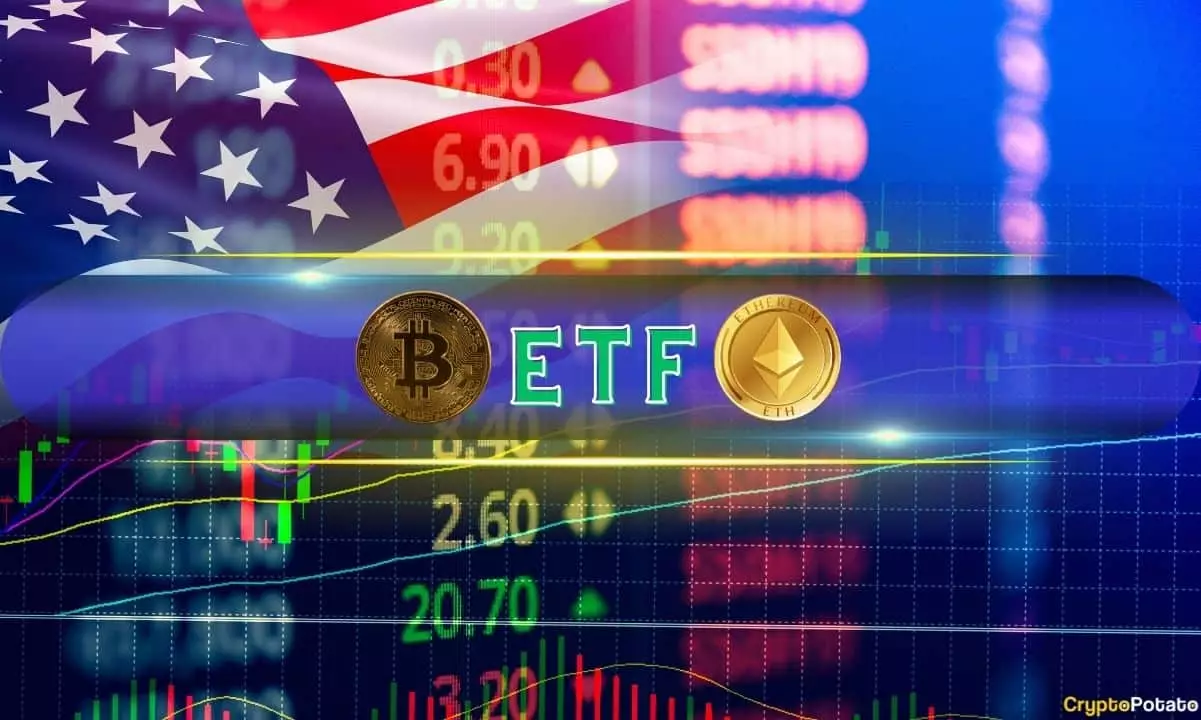In the rapidly evolving world of finance, cryptocurrency-related exchange-traded funds (ETFs) have taken a center stage, representing a significant shift in the investment landscape. As of 2024, these ETFs account for nearly 40% of the top 50 best-performing funds, underscoring a substantial increase in investor interest in digital currencies. This trend not only highlights the growing acceptance of cryptocurrencies as a viable asset class, but it also positions these funds as essential components for both seasoned investors and newcomers alike.
Recent data, including insights shared by ETF expert Nate Geraci, reveals that 19 out of 610 new funds launched in 2024 are explicitly linked to prominent cryptocurrencies such as Bitcoin (BTC) and Ethereum (ETH). Notably, these funds have garnered remarkable attention, with 12 making it into the top 20 rank by performance. This reflects an undeniable trend: investors are increasingly looking to diversify their portfolios with cryptocurrency exposure. The ability of these ETFs to attract billions of dollars in inflows signifies a maturation of the digital asset space, where traditional finance principles intertwine with innovative technologies.
Among the standout performers in the cryptocurrency ETF sector, BlackRock’s iShares Bitcoin Trust (IBIT) has made headlines with an astonishing $24.7 billion in year-to-date inflows. The success of IBIT sets a benchmark for other funds, establishing a bar for returns and attracting investor attention. Following closely is Fidelity’s Wise Origin Bitcoin Fund (FBTC), which has seen $10.75 billion in net inflows, and the ARK 21Shares ARKB fund, accumulating $2.6 billion. These figures not only bolster the reputability of cryptocurrency ETFs but also motivate other financial institutions to explore similar offerings.
The fact that a non-crypto fund maintains fourth place, specifically PGIM Ultra Short Municipal Bond ETF with $2.47 billion, accentuates the dominance of digital asset products in a market traditionally driven by bonds and equities. This shift indicates a transformative moment, wherein crypto ETFs are challenging the status quo of conventional investment options.
The Ethereum Boom
Ethereum’s presence in the ETF rankings is also noteworthy, particularly with products like the BlackRock iShares Ethereum Trust (ETHA), which has attracted over $1.4 billion in inflows since its inception. This reinforces Ethereum’s position as a legitimate player in the digital assets market. Other Ethereum-linked ETFs, such as Fidelity Ethereum Trust (FETH) and Grayscale’s Ethereum Mini Trust ETF (ETH), have also made significant strides, collectively accounting for over $2.8 billion in accumulated flows. This demonstrates a growing acceptance among investors of Ethereum as a critical component of the blockchain ecosystem.
An interesting aspect of this trend is the role of MicroStrategy, which holds the title of the world’s largest corporate Bitcoin holder, with over 279,000 BTC. Their influence has extended into ETF formations, with several MicroStrategy-linked funds flourishing. Funds like the YieldMax MSTR Option Income Strategy and the T-Rex 2X Long MSTR Daily Target ETF showcase how corporate strategies and cryptocurrency investments can intersect to create innovative financial products, capturing the interest of institutional and retail investors alike.
While the giants lead in terms of inflows, smaller ETFs are also gaining momentum in this burgeoning market. Funds like the VanEck Bitcoin ETF (HODL) and ProShares Ultra Bitcoin ETF (BITU) have reported substantial inflows, performing competitively against more conventional financial products. This diversity in options empowers investors with a wider range of approaches to gain crypto exposure. The performance of these smaller ETFs suggests that investor interest is not solely concentrated on the largest players; rather, there is a robust market for niche products as well.
The growth of cryptocurrency ETFs in 2024 signals a revolutionary shift in investment strategies, and as these funds continue to attract significant capital, they are likely to influence the broader financial landscape. With a blend of traditional investment principles and innovative digital technologies, cryptocurrency ETFs are poised to play a vital role in shaping the future of the investment world. Investors are encouraged to consider these assets as both a means of diversification and as avenues to engage with the cryptocurrency market more deeply. As the market matures, the potential for new products and strategies will likely expand, further embedding cryptocurrency in the fabric of modern finance.

